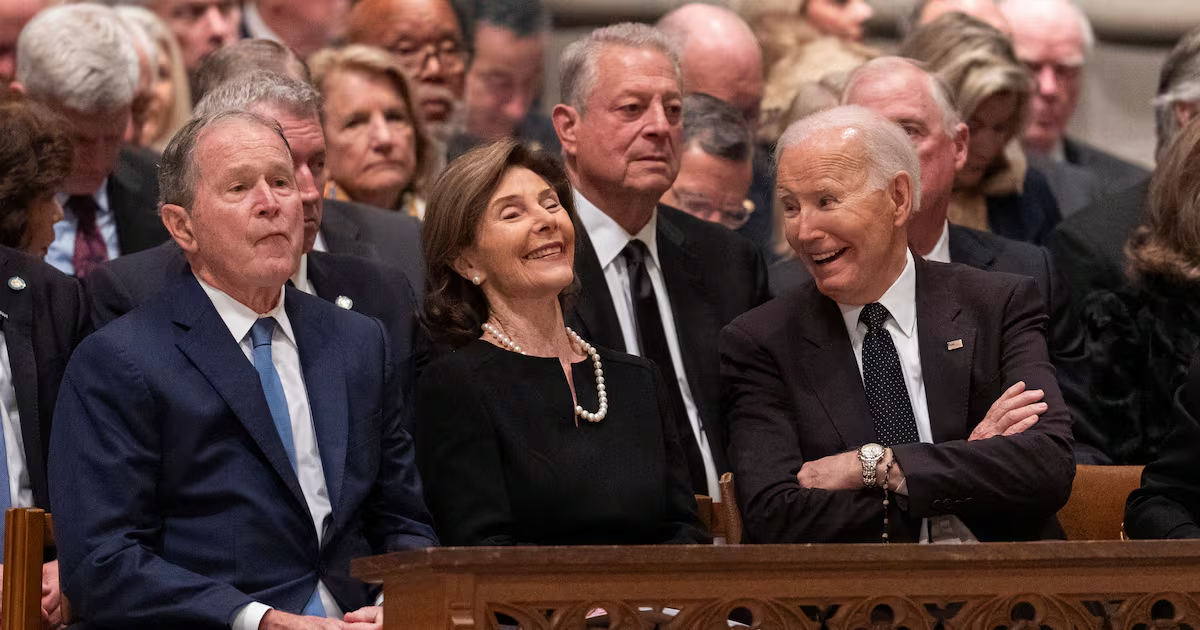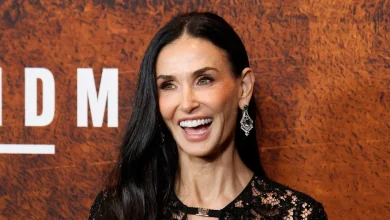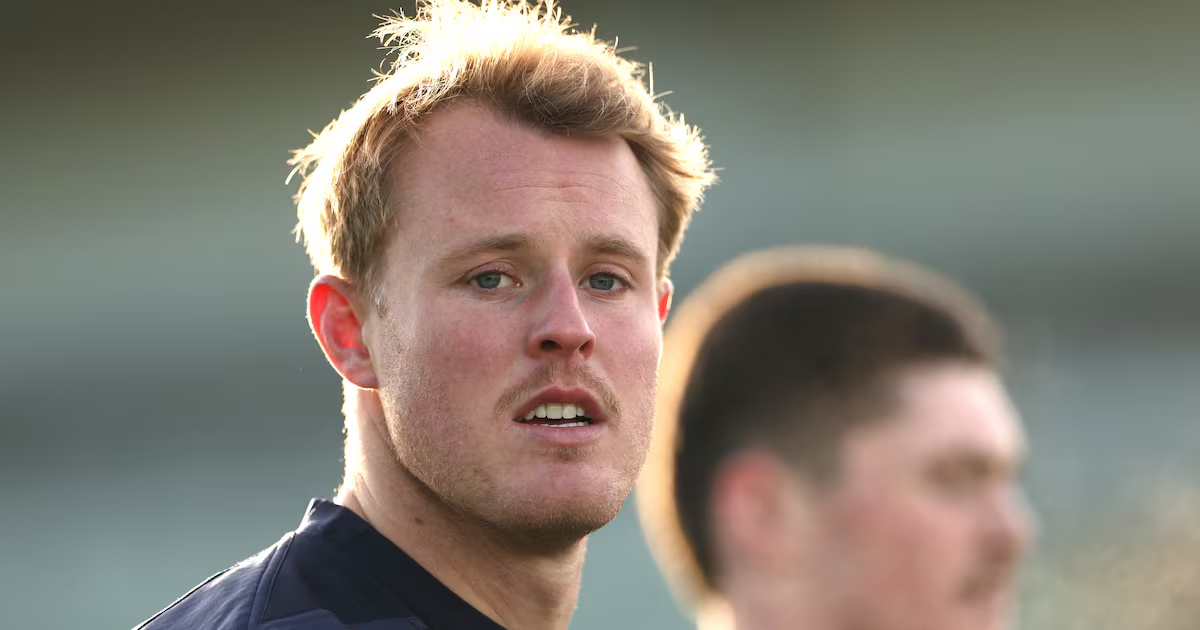Donald Trump and JD Vance not invited to funeral of Dick Cheney

Donald Trump and JD Vance have been snubbed, by not being invited to former vice-president Dick Cheney’s funeral, taking place on Thursday, according to a White House official familiar with the matter.
Cheney, the former US vice-president to George W Bush and Republican defence hawk who became a fierce critic of the current US president, died earlier this month at the age of 84.
The funeral service at the National Cathedral in Washington DC was instead packed with old-school Republicans who held power in Cheney’s political era. Mr Bush delivered the eulogy at the 11am service.
But in the front pews was a bipartisan group: former president Joe Biden, former vice-presidents Kamala Harris, Mike Pence, Al Gore and Dan Quayle, former House speaker Nancy Pelosi and US supreme court chief justice John Roberts.
Liz Cheney, the daughter of Dick Cheney, walks past her father’s casket at the funeral service on Thursday. Photograph: Andrew Harnik/Getty Images
Notable absences included Barack Obama and Bill Clinton. A spokesperson for Clinton said he had an unavoidable scheduling conflict.
In a further twist that perhaps illustrated the degree to which Mr Trump has reshaped the nation’s political landscape and forged unlikely alliances, liberal TV host Rachel Maddow made an appearance at the service.
Mr Trump’s exclusion came as little surprise, given his animosity towards Mr Cheney’s daughter Liz, the former Republican congresswoman who served as the vice-chair of the House January 6th committee and was deeply critical of Mr Trump’s role in the US Capitol riot.
The committee leaned in many ways on Liz Cheney’s deep Republican ties and her status as the third-ranking House GOP member for its objective credentials, which so angered Mr Trump that he endorsed her primary challenger in the 2022 midterms.
[ Dick Cheney was the most influential and consequential US vice-president in living memoryOpens in new window ]
Liz Cheney spoke at the funeral on Thursday about the great education she and her sister Mary received from their father in the importance of the American republic and public service.
Without overtly attacking the president, she alluded to her father’s role in her decision to lead the effort to hold Mr Trump to account for his role in the January 6th insurrection by his supporters.
She continued the effort, arguing it was her constitutional duty, despite most Republicans in Washington and the Maga base closing wagons around Trump and turning against her, costing her her congressional career.
She noted that Democratic president John F Kennedy inspired Dick Cheney into public service, even though he chose the Republican Party.
Then she added of her father: “But he knew that bonds of party must always yield to the single bond we share as Americans. For him, a choice between defence of the constitution and defence of your political party was no choice at all.”
Former US vice-president Al Gore (right) greets Biden, as Republican senator Mitch McConnell and his wife Elaine Chao and US Senate majority leader John Thune stand by, during the funeral service. Photograph: Andrew Harnik/Getty Images
Both Liz and Dick Cheney – once seen as key members of the Republican Party – endorsed Ms Harris in the 2024 election, a break that would have been unthinkable when Mr Cheney served as Mr Bush’s second in command. Ms Harris lost to Mr Trump last November, giving the Republican his second term in office.
Regarded as one of the most polarising vice-presidents and once likened to “Darth Vader”, Mr Cheney died on November 3rd of complications of pneumonia and cardiac and vascular disease, according to his family.
As vice-president, Mr Cheney helped direct the US response to the 9/11 terrorist attacks in 2001, muscled through an expansion of secret government surveillance power, and led the push to invade Iraq and Afghanistan.
He started his career in Washington as a 28-year-old in the Nixon administration, where he served as a special assistant to Donald Rumsfeld; he became the youngest White House chief of staff at 34 when he replaced Rumsfeld after he was named defence secretary.
After Gerald Ford lost the 1976 presidential election to Jimmy Carter, Cheney returned to Wyoming to run for a congressional seat. Mr Cheney spent a decade in the US House, where he rose to being the House minority whip.
Mr Cheney resigned his congressional seat to join the George H W Bush administration as defence secretary and oversaw the US operation in the the Gulf War. Mr Cheney was chosen by George W Bush to be his running mate for the 2000 election, which they won over incumbent vice-president Al Gore and senator Joe Lieberman. – Guardian





